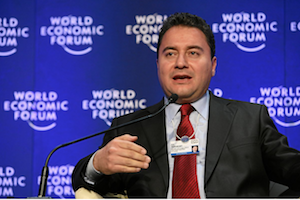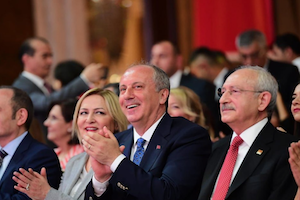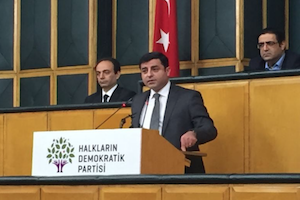Illusion's End: Erdoğan and Turkey's Coming Economic Chill
By Gareth H. Jenkins
June 20, 2018
The rapid depreciation in the value of the Turkish Lira since the beginning of 2018 is the product not only of the collapse of any remaining vestiges of investor confidence in the regime of President Recep Tayyip Erdoğan but a symptom of the failure of the ruling Justice and Development Party (AKP) to address the long-standing structural vulnerabilities of the Turkish economy.

Will the Kurdish Question Secure Erdoğan's Re-election?
By Halil Karaveli
June 18, 2018
The Kurdish question may serve President Recep Tayyip Erdoğan, helping to secure his re-election. The election campaign has demonstrated that Erdoğan no longer energizes the masses; after fifteen years in power, the Turkish president shows every sign of being worn out. He is no longer an inspirational leader; he has nothing new to say or to promise. But Erdoğan nonetheless retains the loyalty of the AKP base. And as the spokesperson of the nationalism of the Turkish state he is assured of enough non-partisan support as well.

Turkey's Kurds at the Crossroads: To the Political Graveyard of Turkey or To Be the Gravediggers of Turkish autocracy?
By Cengiz Çandar
May 22, 2018
The outcome of Turkey’s upcoming election will be determined by the Kurdish voters. This is ironic since the presidential system that the election will enshrine is designed to exclude the Kurds from the political system of Turkey. The sequence of fatal mistakes that have been committed since 2015 show that the Turkish state is determined to deprive the Kurds from having a political say, whatever the cost. The Kurds will either liquidate Turkish autocracy or be amputated from the Turkish body politic.

What the Columnists Say
Ali Bayramoğlu in Yeni Şafak writes that the AKP congress showed that Erdoğan is imposing a model of partisan presidency. Taha Akyol in Hürriyet writes that the new AKP is much more than ever before under the control of Erdoğan and he asks what’s left of the authority of the prime minister. Abdülkadir Selvi in Yeni Şafak implores the AKP to preserve its unity, which he fears is gravely threatened unless the party embraces the old guard that has been purged. Etyen Mahçupyan in Akşam writes that the best way of derailing AKP’s reformism is to end the solution process and he asks what will be the choice of the AKP – to represent old Turkish statism and nationalism or reformism. Mümtazer Türköne in Zaman writes that Erdoğan and PKK are both determined to finish off HDP, and he predicts that HDP is going to boycott the upcoming election to parliament, but thinks that in the end both palace and PKK are going to be the losers.

What the Columnists Say
Yavuz Baydar in Bugün writes that the assaults against media are part of the strategy of the AKP to ensure that the November 1 election yields a three-party parliament, without the HDP, with the AKP’s majority restored. Ömer Laçiner in Birikim warns that the election campaign threatens to be Turkey’s historically most violent one. Korkut Boratav on the sendika.org site writes that there is no reason to expect that finance capital is going to precipitate the fall of AKP from power by deserting Turkey. Ertuğrul Özkök in Hürrriyet observes that the new Chief of the General Staff Hulusi Akar made very unusual, ethnic references, to a supposed Turkish identity of the state of Turkey, in his Victory Day speech. Ali Bulaç in Zaman writes that Turkey’s participation in the Western war against IS amounts to waging war against Muslims, that this has no Islamic legitimacy, besides being politically and militarily wrong.





